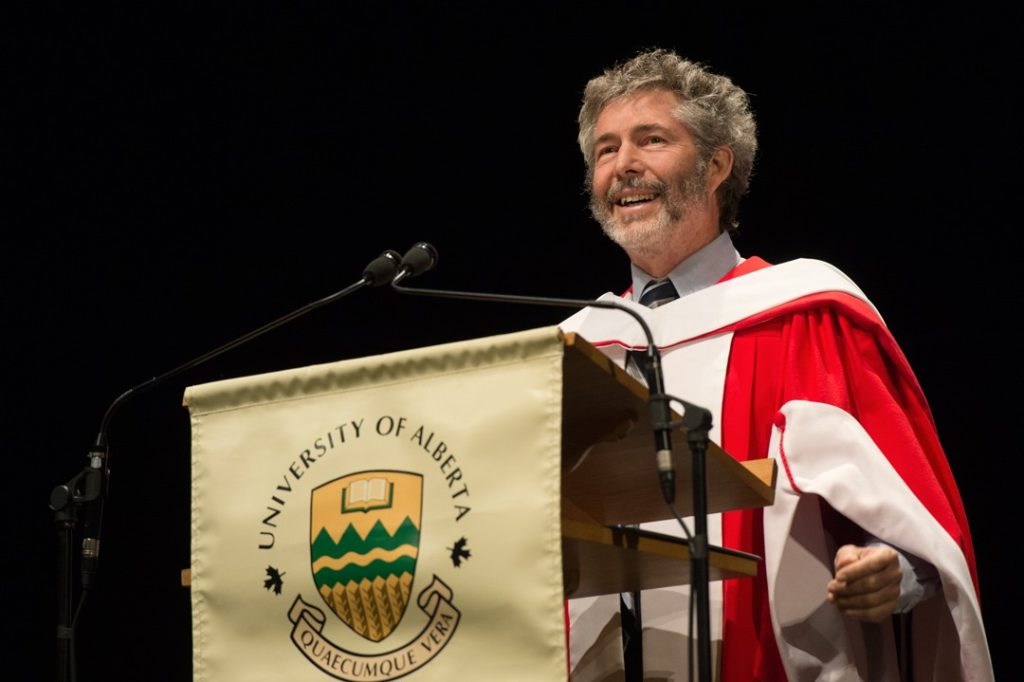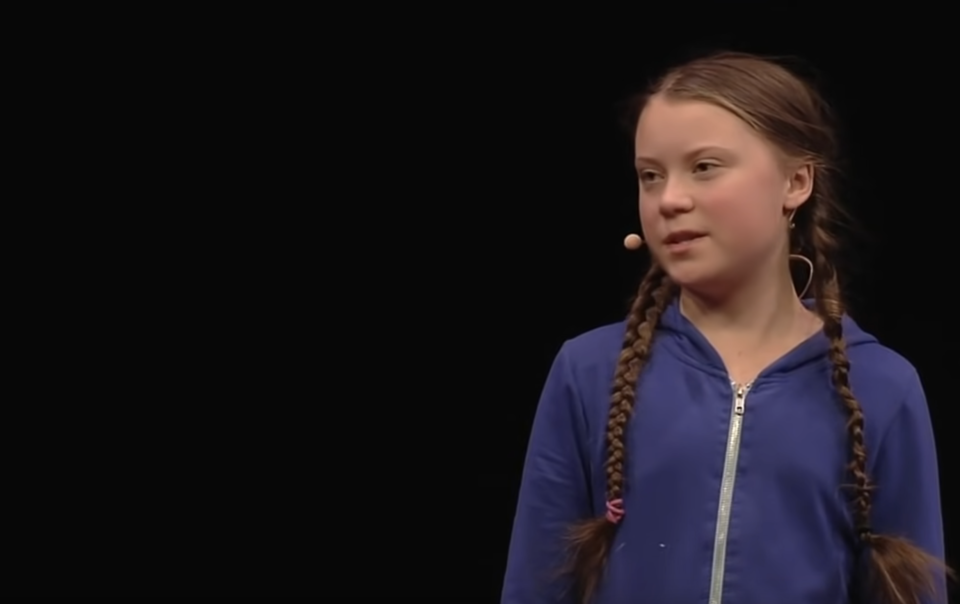
David Cheriton เป็นศาสตราจารย์จากมหาวิทยาลัย Stanford ที่รวยที่สุดในประวัติศาสตร์ ปัจจุบัน เดวิด เชอริตัน มีความมั่งคั่งสุทธิ หรือ Net Worth อยู่ราวๆ หนึ่งหมื่นล้านเหรียญสหรัฐ ($10 billion) หรือ ราวๆ สามแสนสามหมื่นสี่พันห้าร้อยล้านบาท
อาชีพครู หรือ อาจารย์ หากเป็นในบ้านเรา ก็คงมีคนบอกว่าคงเป็นไปไม่ได้อย่างแน่นอนที่อาชีพนี้จะร่ำรวย หรือ สร้างความมั่งคั่งได้ แต่ถ้าหากจะรวยได้จริง ก็อาจจะเป็นเพราะ ครู หรือ อาจารย์บางคน มีต้นทุนที่ดีอยู่ก่อนแล้ว เช่นอาจจะมาจากครอบครัวที่เป็นมหาเศรษฐีอยู่แล้ว หรือ ไม่ก็ต้องมีธุรกิจเสริม
แต่กรณีของ David Cheriton ไม่ได้เป็นแบบนั้นเลย เขาไม่ได้มาจากครอบครัวที่ร่ำรวยมาก่อน แต่ที่เขามีวันนี้ได้เพราะโอกาสต่างหาก ที่พุ่งเข้ามาหาเขา
จุดเริ่มต้นและเส้นทางของศาสตราจารย์จากมหาวิทยาลัย ที่มั่งคั่งที่สุดในโลก
David Ross Cheriton (เดวิด โรส เชอริตัน) เกิดวันที่ 29 มีนาคม 1951 เขาเป็นเด็กชายที่เกิดในครอบครัวของวิศวกร ในวัยเด็กเขามีความฝันอยากจะเป็นนักดนตรีให้ได้ แต่ความฝันของเขาต้องมาพังทลายลง เพราะเขาโดนปฏิเสธจากคณะดนตรี มหาวิทยาลัยมหาวิทยาลัยอัลเบอร์ต้า ทำให้เขาเก็บของกลับบ้านในทันที
“เมื่อความฝันของเราถูกทำลาย เราก็สามารถสร้างความฝันใหม่ที่เข้ามาแทนที่ได้”
คนเราจะจมปลักกับการถูกปฏิเสธครั้งเดียว หรือ ไม่กี่ครั้ง ก็คงไม่ได้ใช่ไหมล่ะ เดวิด เขาก็คิดแบบนั้นเช่นกัน เขาค้นพบความฝันใหม่ และตกหลุมรักมันเข้าอย่างจัง ความฝันที่ว่านั่นก็คือ “คอมพิวเตอร์”

ดูเหมือนเขาจะคลั่ง และสนใจในเรื่องคอมพิวเตอร์เป็นอย่างมากๆ เพราะตัวเขาจบปริญญาเอกในสาขาวิชา วิทยาศาสตร์คอมพิวเตอร์ จากมหาวิทยาลัยวอเตอร์ลู และเริ่มทำงานเป็นผู้ช่วยศาสตร์จารย์ที่มหาวิทยาลัยบริติชโคลัมเบียอยู่ 3 ปีก่อนที่เขาจะย้ายมาทำงานที่มหาวิทยาลัยแสตนฟอร์ดในเวลาต่อมา
“เพราะถ้าเราทำในสิ่งที่รัก นอกจากจะทำมันได้ดีแล้ว มันจะนำพาโอกาสดีๆ มาให้เราอีกด้วย”
หลังจากเข้าทำงานที่มหาวิทยาลัยแสตนฟอร์ด เดวิดได้ตั้งทีมที่พัฒนา ไมโครเคอร์เนล หรือการจัดการระบบที่แบ่งการทำงานในแต่ละภาคส่วนออกจากกัน ตัวอย่างเช่นที่เราเคยได้ยินคำว่า “การจัดการซอฟต์แวร์ประยุกต์” กันอยู่บ่อยๆ ระบบนี้มีชื่อว่า V ซึ่งภายหลังระบบนี้ถูกใช้ในการส่งต่อข้อมูลภายในเครือข่ายและติดต่อสื่อสารกับคอมพิวเตอร์ผ่านรูปภาพเช่น คลิกไอคอนรูปภาพคำสั่งที่ต้องการแทนการสั่งคอมพิวเตอร์ผ่านการพิมพ์คำสั่งเป็นตัวอักษร เป็นต้น
การเป็นศาสตราจารย์ สอนนักศึกษาปริญญาเอกของเดวิด ทำให้เขาได้พบกับ แอนดี เบ็กโตลไชม์ นักศึกษาผู้แทบจะไม่เคยเข้าเรียนเลย แต่กลับผุดงานอดิเรกชิ้นใหญ่อย่าง “The SUN” หรือ ระบบเครือข่ายอินเทอร์เน็ตในมหาวิทยาลัยแสตนฟอร์ด ความคลั่งไคล้ในงานอดิเรกชิ้นนี้ทำให้แอนดี ลาออกจากมหาวิทยาลัยในที่สุด เพื่อมาก่อตั้งบริษัท Sun Microsystems ขึ้น และบริษัทนี้ ก็สามารถทำรายได้ถึง หนึ่งพันล้านดอลลาร์สหรัฐในเวลาเพียงแค่ 9 ปี หลังจากบริษัทเปิดตัวในตลาดหลักทรัพย์
แต่หลังจากความสำเร็จมากมายของบริษัท Sun Microsystems แอนดีตัดสินใจลาออกจากบริษัท เพื่อผันตัวเองเป็นผู้ร่วมก่อตั้งบริษัทใหม่อย่าง Granite Systems ถึงตรงนี้ พวกเราลองเดาดูสิว่า ใครคือผู้ร่วมก่อตั้งอีกคนของแอนดี?
จาก 100,000 กลายเป็น 22,000,000 ดอลลาร์สหรัฐ
David Cheriton ตกลงเป็นผู้ร่วมก่อตั้งบริษัท Granite Systems กับแอนดี หลังจากนั้นปีกว่า พวกเขาสามารถทำเงินได้ถึง 220 ล้านดอลลาร์สหรัฐ จากบริษัท Cisco บริษัทที่ผลิตและจัดจำหน่ายอุปกรณ์ฮาร์ดแวร์เครือข่ายและเทคโนโลยีขั้นสูง ในความสำเร็จครั้งนี้แอนดี ทำเงินได้ไปกว่า 132 ล้านดอลลาร์สหรัฐ จากการถือหุ้น 60% ของเขา
และแน่นอน ศาสตราจารย์เดวิดของเรา ก็ทำรายได้จากการถือหุ้นครั้งนี้เช่นกัน เพราะเบื้องหลังความสำเร็จนี้ ศาสตราจารย์ผู้เจียมเนื้อเจียมตัวของเราทำรายได้ไปถึง 22 ล้านดอลลาร์สหรัฐ จากการลงทุนไปเพียง 100,000 ดอลลาร์สหรัฐ หรือ ถือหุ้นบริษัทเพียง 10% เท่านั้น และแน่นอนเขาไม่เคยลงทุนเกินไปกว่าเงินจำนวนนี้เลย
กฎแห่งแรงดึงดูด มีหลักการ ก็คือจะดึงดูดสิ่งที่เหมือนกันเข้าหากัน
แลร์รี เพจ และ เซอร์เกย์ บริน นักศึกษามหาวิทยาลัยแสตนฟอร์ด สิ่งที่พวกเขาทั้งคู่สนใจ มันเริ่มดึงดูดพวกเขาเข้าหากัน แลร์รี มีความสนใจในการฟื้นฟูเครื่องมือการค้นหา เพราะเล็งเห็นถึงปัญหาเกี่ยวกับเว็บไซต์เครื่องมือค้นหาในอินเทอร์เน็ตที่เต็มไปด้วยแสปม ก็เลยเกิดเป็นวิทยานิพนธ์ ในหัวข้อ “The Anatomy of a Large-Scale Hypertextual Web Search Engine” และ แน่นอนว่าผู้ร่วมเขียนวิทยานิพนธ์เล่มนี้ จะเป็นใครไม่ได้เลยนอกจาก เซอร์เกย์
แลร์รี มีแนวคิดที่ว่า คุณภาพของวิทยานิพนธ์เล่มนี้ จะขึ้นอยู่กับจำนวนครั้งที่วิทยานิพนธ์เล่มนี้ถูกนำไปอ้างอิงในวิจัยเล่มอื่นๆ จากแนวคิดนี้ทำให้ถูกนำไปปรับเป็นแนวคิดในงานวิจัยว่า คุณภาพของเว็บไซต์ขึ้นอยู่กับจำนวนลิงค์ที่ได้รับจากเว็บไซต์อื่น ซึ่งหมายถึงลิงค์ในเว็บไซต์ของเขาสามารถลิงค์ไปถึงเว็บไซต์อื่นๆได้กี่เว็บไซต์ นั้นแหละคือคุณภาพของเว็บไซต์ที่สามารถวัดได้
คงเป็นเพราะโลกจะยังดึงดูดสิ่งที่เหมือนกันเข้าหากันเสมอ สำหรับเรื่องนี้ เรื่องบังเอิญไม่มีจริง ศาสตราจารย์ที่ให้คำปรึกษาวิทยานิพนธ์ของแลร์รี เพจ และ เซอร์เกย์ บริน นั่นก็คือ ศาสตราจารย์เดวิดโรส เชอริตัน !
เมื่อโอกาสมาเคาะประตูหน้าบ้านคุณ….
แลร์รี เพจ และ เซอร์เกย์ บริน ตัดสินใจที่จะพัฒนาวิทยานิพนธ์ของพวกเขา ให้กลายเป็นธุรกิจแทน พวกเขาตัดสินใจเคาะประตูของศาสตราจารย์เดวิด ที่ให้คำปรึกษาวิทยานิพนธ์ของพวกเขา และ ขอเสนอแนวคิดเกี่ยวกับเว็บไซต์เครื่องมือค้นหาในชื่อแรกที่ว่า “Googo” (พวกเขาบอกว่ามันหมายถึง 10 ยกกำลัง 100 ซึ่งมีมูลค่ามหาศาลเลย) แต่หลังจากนั้นชื่อนี้ก็ถูกเรียกกันจนเพี้ยนมาเป็น “Google” อย่างที่เรารู้จักกันทุกวันนี้ในท้ายที่สุด
ศาสตราจารย์เดวิด คิดว่าทำไมเขาถึงต้องไม่รับโอกาสดีๆที่มาหาถึงที่แบบนี้ล่ะ เดวิด และแอนดี ตัดสินใจเขียนเช็คให้ แลร์รีและเซอร์เกย์ไป เป็นจำนวน 100,000 ดอลลาร์สหรัฐหลังจากที่ได้ฟังแนวคิดของพวกเขาเพียงแค่ 10 นาทีเท่านั้น
ศาสตราจารย์ด้านคอมพิวเตอร์ ที่มีความเชี่ยวชาญในการลงทุน
แม้ว่า ศาสตราจารย์เดวิด จะประสบความสำเร็จอย่างยิ่งใหญ่ ในขนาดที่เรียกว่ามีเงินกินเงินใช้ไปทั้งชาติก็ไม่หมดแล้ว เดวิด ก็ยังลงทุนใน VMware เทคโนโลยีสำหรับทำระบบ Server Virtualization เป็นส่วนหนึ่งของโปรแกรมสำหรับควบคุมและสร้างคอมพิวเตอร์เสมือน หลังจากนั้น เดวิดและแอนดี ก็ได้ร่วมกันก่อตั้งบริษัทวิดีโอสตรีมมิ่ง ในชื่อ Kealia ซึ่งทำรายได้จากบริษัท Sun Microsystems ไปถึง 120 ล้านดอลลาร์สหรัฐ
นอกจากนี้ เดวิดและแอนดี ก็ยังเป็นผู้ร่วมก่อตั้งบริษัทเทคโนโลยีเครือข่ายชื่อ Arista Networks ซึ่งปัจจุบันมีมูลค่าตามตลาดอยู่ที่ 30 พันล้านดอลลาร์สหรัฐเลยทีเดียว
“จากศาสตราจารย์ด้านคอมพิวเตอร์ สู่การเป็นศาสตราจารย์ที่รวยที่สุดในประวัติศาสตร์”
หากพูดถึงความสำเร็จของ Google แล้วละก็ 1.7 ล้านล้านดอลลาร์สหรัฐ คือมูลค่า ตามตลาดตอนนี้ แน่นอนว่ามันทำให้ แลร์รีและเซอร์เกย์ เจ้าของไอเดียของเราขึ้นแท่นเป็นบุคคลที่รวยที่สุดในโลกตอนนี้เป็นอันดับที่ 6 และ 7 ตามลำดับ พวกเขามีทรัพย์สินโดยรวมไม่ต่ำกว่าคนละ 100 พันล้านดอลลาร์สหรัฐ และ ถ้าเราจะพูดถึงศาสตราจารย์ผู้เป็นอาจารย์ที่ปรึกษาวิทยานิพนธ์ของเขาละก็ ตอนนี้ศาสตราจารย์เดวิด มีทรัพย์สินรวมอยู่ที่ 10 พันล้านดอลลาร์สหรัฐ แต่มันก็เพียงพอแล้ว กับการที่จะทำให้เขาติดอันดับหนึ่งใน 250 คนที่รวยที่สุดในโลก

ตลอดเวลาในช่วงชีวิตของเขา ความเจียมเนื้อเจียมตัวของเดวิดที่ไม่เคยเปลี่ยนไปตามเงินหรือความมั่งคั่งที่เขามี เดวิดยังคงเป็นบุคคลที่ทำให้นักศึกษาได้ชื่นชมอยู่ตลอด เพราะเขายังคงเป็นศาสตราจารย์อยู่ที่มหาวิทยาลัยแสตนฟอร์ด ยังคงอยู่ห้องทำงานเดิม ถึงแม้ว่าตอนนี้เขาจะขึ้นแท่นเป็นศาสตราจารย์กิตติคุณแล้วก็ตาม เขาก็ยังคงใช้รถคันเดิม อยู่บ้านหลังเดิม ไม่เปลี่ยนแปลง แต่ที่เปลี่ยนแปลง ก็คงจะมีเพียงตัวเลขจำนวนทรัพย์สินของเขาจริงๆที่เปลี่ยนไป
บทสรุป
ในยามที่โอกาสถูกหยิบยื่นมาอยู่ตรงหน้าคุณ อย่าได้ลังเล ลองก้าวออกไปหยิบมันมาเสียเถอะ เพราะเราไม่มีทางรู้ได้เลยว่า เมื่อไรโอกาส มันจะวนกลับมาหาเราอีกครั้ง หรือมันจะกลับมาหาเราอีกหรือเปล่า จากเรื่องราวของศาสตราจารย์เดวิด ทำให้เห็นถึงเรื่องการใช้ชีวิตในหลากหลายมุมมอง ไม่ว่าจะเป็นความฝัน การใช้ชีวิต หรือการพร้อมรับโอกาสอยู่เสมอ
ศาสตราจารย์เดวิด ทำให้รู้ว่าอย่าล้มเลิกเพียงเพราะฝันแรกของคุณถูกพังทลายลง ไม่ว่าจะไปต่อในเส้นทางความฝันเดิม หรือเริ่มต้นหาตัวเองใหม่ ทุกคนล้วนมีเส้นทางสู่ความสำเร็จเป็นของตัวเอง อย่าปล่อยเวลาไปกับความเศร้าโศกที่มันพังทลาย แต่จงดีใจที่เราได้รู้เรียนความผิดพลาดในวันนี้ เพราะวันที่เราก้าวเดินออกไปอีกครั้ง เราจะมั่นใจได้ว่าเราจะไม่ผิดพลาดซ้ำอีก
“ไม่ว่าจะทำอยู่ในอาชีพใดๆ ก็ตาม เราต่างก็มีเส้นทางในการประสบความสำเร็จเฉพาะตนเสมอ”
ศาสตราจารย์เดวิด มักมีชีวิตที่เรียบง่าย ไม่ผันแปรไปกับชื่อเสียง ความสำเร็จ หรือเงินทองตรงหน้าที่เพิ่มพูนขึ้นอย่างไม่หยุดหย่อน เขายังคงเป็นเดวิดคนเดียวกับวันที่เริ่มทำงานที่มหาวิทยาลัยแสตนฟอร์ดวันแรก สิ่งเหล่านี้ทำให้เขาประสบความสำเร็จและเป็นที่รักมาจนถึงทุกวันนี้
ศาสตราจารย์เดวิด ไม่เคยปฏิเสธโอกาสที่เข้ามาหา เขาพร้อมรับไว้และทำมันอย่างสุดความสามารถ ไม่ว่าจะเป็นเรื่องหน้าที่การงานหรือเรื่องการลงทุน นอกจากจะรับโอกาสที่เข้ามาแล้วเขายังพร้อมมอบโอกาสให้แก่ผู้อื่นอีกด้วย ซึ่งมันตอบแทนเขาได้อย่างเกินความคาดหมายจริงๆ
“โอกาส ไม่ได้มาบ่อยๆ จงอย่าปล่อยให้มันผ่านไป โดยไม่ได้ทำอะไรกับโอกาสนั้นเลย”
ใครจะรู้ว่าโอกาสที่เราขว้างทิ้งวันนี้ อาจจะเป็นโอกาสสุดท้ายที่ทำให้เราไปถึงความสำเร็จสูงสุดแล้วก็ได้ เพราะฉะนั้นจงทำตัวเป็นเจ้าของบ้านที่พร้อมเปิดรับทุกโอกาสที่ผ่านเข้ามา ใครจะรู้ … คุณอาจจะเป็นบุคคลถัดไปที่มีความมั่งคั่งสูงสุดในสายอาชีพก็เป็นได้
Source:
Professor Billionaire: The Stanford Academic Who Wrote Google Its First Check







